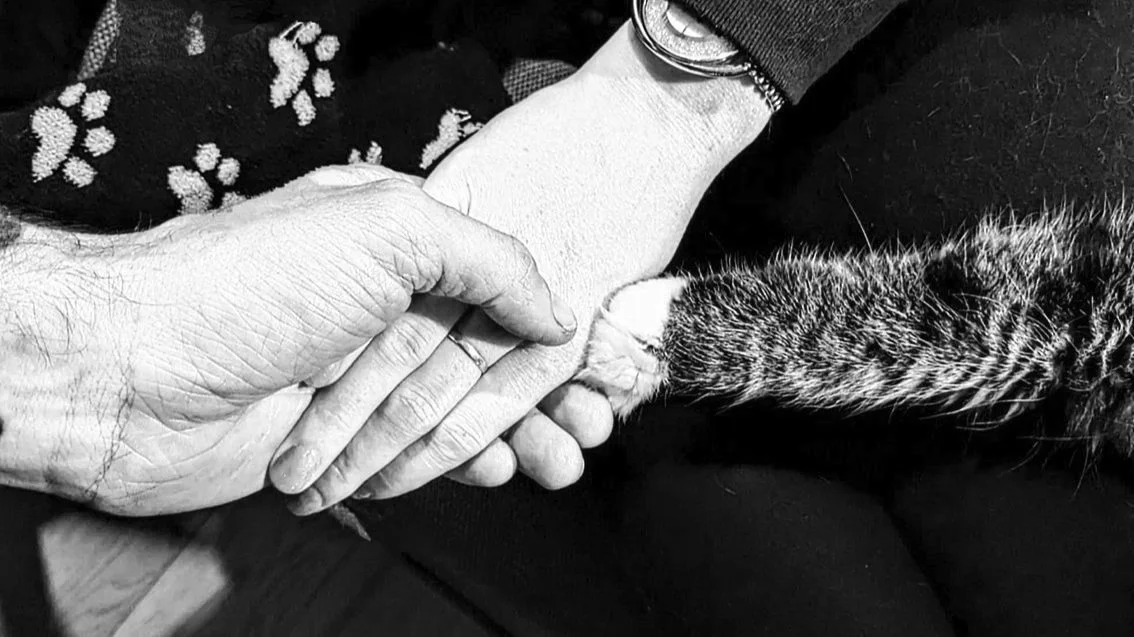Resilience in the face of adversity
Christyn Modica, LMHC, SUDP
Christynmodica@pathoffortitudepllc.com
Complex Trauma Healing
Helping people heal relational wounds that impact the brain, body, and nervous system with current and effective body-oriented, neurobiological approaches.
Perhaps you have begun searching for answers because you feel lonely or are terrified that you will end up alone. Or maybe deep down you feel unlovable or not deserving of love and find yourself repeating the same patterns that you thought you had resolved. When we feel uneasy and stressed, it can be hard to manage the challenges of life in today’s society. Our relationships begin to suffer, and we find ourselves in crisis, exhausted, feeling alone, and not knowing where to turn. Our sense of self shatters as we struggle to trust that anyone has our back, or will be there when we need them.
Why it is important to get help
When we experience the world as unsafe, our nervous systems respond in a chronic state of stress. We experience difficulty with concentration, attention, feel emotionally overwhelmed and overstimulated, a deep sense of shame and despair, and experience conflict with the people we love and need. A reduction in symptoms can significantly improve quality of life as we begin to move from a state of survival to a life of vitality and find a way back to the love you deserve.
Symptoms Associated with Complex Trauma
Nightmares
Shame
Caretaking
Fear of abandonment/rejection
Difficulty with trust
Difficulty with concentration/focus
Emotional overwhelm
Numbing
Conflict
Social anxiety
People pleasing
Addiction
Panic attacks
Difficulty sleeping
Depression
Anxiety
How therapy heals
Love. Compassion. Resilience. Authenticity. Four of my favorite words.
The body has an incredible inherent wisdom that can get lost in the damaging effects of traumatic events, especially when exposure to trauma is prolonged and chronic. A sense of safety and security in the world is compromised when those we trust and depend on for survival, such as our parents or caretakers, is betrayed, neglected, rejected, or abused during our development. Such experiences impact the brain, body, and nervous system in complicated ways, and can manifest in even more complex ways through life and as adults, particularly in relationships. With enough exposure to adversity, we lose sight of what builds vitality of life.
Attachment trauma is particularly complex because it influences foundational experiences of others, how we see the world as safe or unsafe, our connection to our sense of self and our body, and our sense of identity. Therapy is a process of untangling the physical manifestations of the trauma by understanding the story the body tells in addition to other approaches that aid in healing. If we know trauma lives in the body, then working with the body directly is the most effective way to heal complex unresolved trauma.
I use a warm and welcoming relational approach that is centered on a collaborative process of mapping goals and targeting nervous system disruptions (anxiety and depression, mood, chronic stress, etc.) that interfere with quality of life and relationships. Goals for therapy include moving from a life of chronic survival to a life of vitality free from the constraints of unresolved relational trauma through Sensorimotor Psychotherapy and Polyvagal Theory-informed approaches, in addition to other effective approaches to healing. I also offer Deep Brain Reorienting (DBR) to address experiences of shock that live in deep parts of the brain and contribute to nervous system dysregulation. DBR has been effective in helping people live in their bodies in a different way.
For more information on my approaches to healing trauma, improving relationships and increasing a general sense of security, see below.
Professional Credentials
Acquiring and maintaining relevant professional credentials is often essential for advancing one's career and gaining the trust of clients and peers. The diligent pursuit of these credentials reflects a commitment to ongoing learning and growth to provide the most up to date and effective approaches to healing complex trauma.
Education
2021 MA, Clinical Mental Health Counseling, Antioch University Seattle
Professional Credentials
2021 Licensed Mental Health Counselor
2014 Substance Use Disorder Professional
Sensorimotor Psychotherapy (Level I)
Deep Brain Reorienting (Level II)
Certified Complex Trauma Professional (Level II)
Specialties
As a Complex Trauma therapist and licensed Substance Use Disorder Professional, my approaches are focused on “bottom-up” interventions, or approaches that work primarily with trauma stored in the body and result in physical and psychological symptoms that interfere with quality of life. My training in Sensorimotor Psychotherapy allows me to use the body’s wisdom, hear it’s story, and find relief by completing what the body wanted but couldn’t do during a traumatic event.
In addition, my training in Polyvagal Theory allows me to use the body, the nervous system, and the brain in traumatic healing. Often symptoms manifest in complex ways that have early life origins, result in strong and persistent biological survival mechanisms, and impede our quality of life and connection with others.
To deepen trauma healing, I offer Deep Brain Reorienting to find and clear experiences of traumatic shock and terror stored in the deepest regions of the brain, resulting in an immediate reduction of symptoms. Currently I am one of three therapists offering this effective approach in Kitsap County.
All of these methods approach trauma healing without needing to talk extensively about or re-live the traumatic event(s). For more information on these approaches, please see website links for each specialty included below.
-

Deep Brain Reorienting
Clearing experiences of shock and terror from deep regions of the brain
-

Sensorimotor Psychotherapy
Processing trauma stored in the body for effective resolution of biological symptoms
-
Complex Trauma Healing
Traumatic experiences can impact us in complex ways, especially when they happen within a relationship of trust and safety. Healing happens when we create safety, understand how these experiences impact us, identify associated origins and patterns, and explore new ways of moving through the world. Understanding your biology is a key factor in knowing how you can influence your nervous system to be more regulated.
-

Polyvagal Theory
Working with the brains capacity to heal trauma, reduce anxiety, depression, and improve relationships.

A safe place for LGBTQIA+ Community and Alternative-Style Relationships
Serving Kitsap County, WA and surrounding areas
As a polyamorous-oriented queer therapist, I provide a judgement-free, sex-positive, kink-friendly, safe and supportive place to explore, build community, and navigate complexities of sexual orientation, sexual identity, gender identity and ENM nontraditional relationship structures in today’s culture.




















